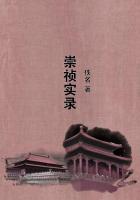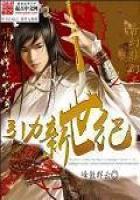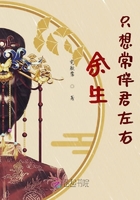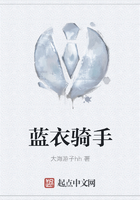"You were quite right last night," he said, "it is a most charming piece of work. I am really extremely grateful to you for bringing it to my notice." He rose, and going to Carroll, put his hand on his shoulder. "My boy," he said, "Icongratulate you. I should like to be your age, and to have written that play. Come to my theatre to-morrow and we will talk terms. Talk it over first with your friends, so that I sha'n't rob you. Do you think you would prefer a lump sum now, and so be done with it altogether, or trust that the royalties may--""Royalties," prompted Marion, in an eager aside.
The men laughed. "Quite right," Wimpole assented, good-humoredly; "it's a poor sportsman who doesn't back his own horse.
Well, then, until to-morrow."
"But," Carroll began, "one moment please. I haven't thanked you.""My dear boy," cried Wimpole, waving him away with his stick, "it is I who have to thank you.""And--and there is a condition," Carroll said, "which goes with the play. It is that Miss Cavendish is to have the part of Nancy."Wimpole looked serious and considered for a moment.
"Nancy," he said, "the girl who interferes--a very good part.
I have cast Miss Maddox for it in my mind, but, of course, if the author insists--"Marion, with her elbows on the table, clasped her hands appealingly before her.
"Oh, Mr. Wimpole!" she cried, "you owe me that, at least."Carroll leaned over and took both of Marion's hands in one of his.
"It's all right," he said; "the author insists."Wimpole waved his stick again as though it were the magic wand of the good fairy.
"You shall have it," he said. "I recall your performance in 'The New Boy' with pleasure. I take the play, and Miss Cavendish shall be cast for Nancy. We shall begin rehearsals at once. Ihope you are a quick study."
"I'm letter-perfect now{,}" laughed Marion.
Wimpole turned at the door and nodded to them. They were both so young, so eager, and so jubilant that he felt strangely old and out of it. "Good-by, then," he said.
"Good-by, sir," they both chorussed. And Marion cried after him, "And thank you a thousand times."He turned again and looked back at them, but in their rejoicing they had already forgotten him. "Bless you, my children," he said, smiling. As he was about to close the door a young girl came down the passage toward it, and as she was apparently going to Carroll's rooms, the actor left the door open behind him.
Neither Marion nor Carroll had noticed his final exit. They were both gazing at each other as though, could they find speech, they would ask if it were true.
"It's come at last, Marion," Philip said, with an uncertain voice.
"I could weep," cried Marion. " Philip," she exclaimed, "I would rather see that play succeed than any play ever written, and Iwould rather play that part in it than--Oh, Philip," she ended.
"I'm so proud of you!" and rising, she threw her arms about his neck and sobbed on his shoulder.
Carroll raised one of her hands and kissed the tips of her fingers gently. "I owe it to you, Marion," he said--"all to you."This was the tableau that was presented through the open door to Miss Helen Cabot, hurrying on her errand of restitution and good-will, and with Philip's ring and watch clasped in her hand. They had not heard her, nor did they see her at the door, so she drew back quickly and ran along the passage and down the stairs into the street.
She did not need now to analyze her feelings. They were only too evident. For she could translate what she had just seen as meaning only one thing--that she had considered Philip's love so lightly that she had not felt it passing away from her until her neglect had killed it--until it was too late. And now that it was too late she felt that without it her life could not go on.
She tried to assure herself that only the fact that she had lost it made it seem invaluable, but this thought did not comfort her--she was not deceived by it, she knew that at last she cared for him deeply and entirely. In her distress she blamed herself bitterly, but she also blamed Philip no less bitterly for having failed to wait for her. "He might have known that I must love him in time," she repeated to herself again and again. She was so unhappy that her letter congratulating Philip on his good fortune in having his comedy accepted seemed to him cold and unfeeling, and as his success meant for him only what it meant to her, he was hurt and grievously disappointed.
He accordingly turned the more readily to Marion, whose interests and enthusiasm at the rehearsals of the piece seemed in contrast most friendly and unselfish. He could not help but compare the attitude of the two girls at this time, when the failure or success of his best work was still undecided. He felt that as Helen took so little interest in his success he could not dare to trouble her with his anxieties concerning it, and she attributed his silence to his preoccupation and interest in Marion. So the two grew apart, each misunderstanding the other and each troubled in spirit at the other's indifference.
The first night of the play justified all that Marion and Wimpole had claimed for it, and was a great personal triumph for the new playwright. The audience was the typical first-night audience of the class which Charles Wimpole always commanded. It was brilliant, intelligent, and smart, and it came prepared to be pleased.
From one of the upper stage-boxes Helen and Lady Gower watched the successful progress of the play with an anxiety almost as keen as that of the author. To Helen it seemed as though the giving of these lines to the public--these lines which he had so often read to her, and altered to her liking--was a desecration.















